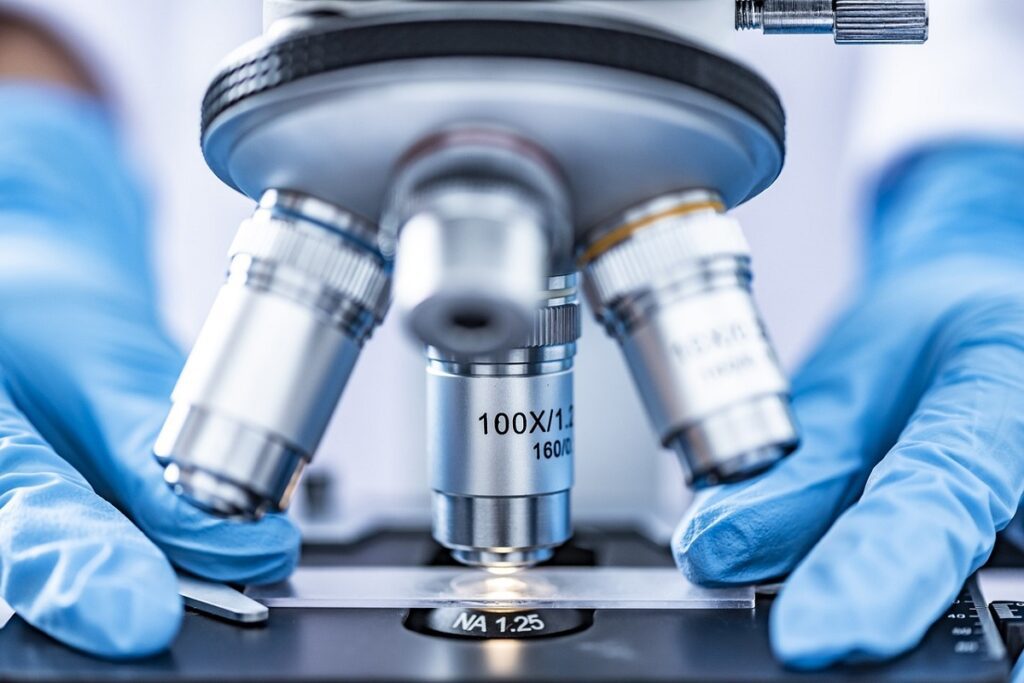On Friday, the Biotechnology Innovation Organization (BIO) submitted biotech regulation comments on the Administration’s Request for Information (RFI) “Identifying Ambiguities, Gaps, Inefficiencies, and Uncertainties in the Coordinated Framework for the Regulation of Biotechnology.”
The Administration, promulgated this RFI as part of its efforts to implement its Executive Order on Advancing Biotechnology and Biomanufacturing Innovation for a Sustainable, Safe, and Secure American Bioeconomy.
BIO’s comments provided recommendations on how the regulations underpinning the Coordinated Framework for the Regulation of Biotechnology can better facilitate the use of plant, animal, and microbial biotechnology to stimulate the economy and to enable products that further societal goals related to health, climate change and energy, food and agricultural innovation, resilient supply chains, and innovative scientific advances.
BIO’s comments also raised the importance of addressing acute and systemic trade barriers to innovative biotechnology tools in important export markets to fully leverage the potential of the technology.
Animal biotechnology
BIO recommended that an effective regulatory framework for the oversight of biotech animals should be based upon the following principles:
- Oversight must protect animal health and welfare, ensure the safety of food, feed, or pharmaceuticals derived from the animals, and consider the possible impacts of the animals on the environment.
- Implementation of oversight must be clear, transparent, efficient, predictable, timely, and based upon the best available science.
- Risk assessment must be proportionate to the actual risk posed by the specific species/trait combination. Lower-risk, more-familiar traits, including traits that impart health benefits to humans and animals, should be given expedited review.
- And, as to animals used for food production, once all appropriate safety reviews are completed, the approved animals should be allowed to be treated as any other farm animal in production and commerce. Ongoing post-market regulatory requirements imposed on such animals, even after they have been determined to be as safe as conventional animals, strongly disincentivize development and commercialization.
Microbial technology
Technology developers utilize microorganisms improved using biotechnology to create high-performing agricultural inputs that can be used alone or in conjunction with conventional products to provide more sustainable solutions to meet grower needs. These sustainable solutions are being developed to help address the impacts of climate change on agriculture, as well as reduce the use of energy-consuming synthetic fertilizers, which are responsible for 2.4 percent of global greenhouse gas emissions and a major factor in the inflationary pressures felt by producers and consumers around the globe.
BIO encouraged the U.S. government to ensure that all of the Coordinated framework agencies with oversight over microbial products, including those at USDA APHIS, FDA, and the Environmental Protection Agency (EPA), are adequately staffed with the appropriate scientific expertise so that regulatory oversight aligns with the good governance principles in Section I.
Plant biotechnology:
USDA APHIS
USDA’s final Part 340, which BIO supports, aims to ensure that regulations keep up with innovation. However, there are a number of areas that can be improved to further facilitate the deployment of innovative products. To safeguard consistency across regulatory reviews under the new Part 340, BIO recommends that USDA employ additional training to agency personnel, and develop streamlined, consistent, and science-based permit templates and review processes that are not overly prescriptive in developer implementation.
USDA AMS
BIO encourages USDA’s Agricultural Marketing Service to develop a process by which product developers can voluntarily seek from AMS product-specific confirmation of whether or not a food is a bioengineered food subject to the National Bioengineered Food Disclosure Standard or BE Standard. AMS does not currently provide this guidance. Knowing whether food from new biotech products is or is not subject to disclosure under the BE Standard can be useful in supporting innovation and investment in the agricultural biotechnology sector.
EPA
BIO supports EPA’s initiative to modernize EPA’s regulations under the Federal Insecticide, Fungicide and Rodenticide Act (FIFRA) to exempt certain “plant-incorporated protectants” (PIPs) in genome-edited plants and hopes to see the final rule issued. BIO urges the Administration to avoid including requirements that were in the proposed rule that are over-prescriptive and restrictive, and requests that any final rule takes into careful consideration comments submitted by BIO and its members on how to make the exemptions more workable and accessible.
FDA
It is crucial that the government establish risk-proportionate, transparent regulations that spur biological innovations while protecting the health and the environment in a timely manner. BIO strongly encourages FDA to promptly release its long-pending guidance on genome editing in plants and encourages FDA to ensure that the guidance meets three goals:
- reconfirms principles from the 1992 policy statement on new plant varieties
- demonstrates regulatory consistency across all federal agencies
- aligns with the policies of like-minded key trading partners, like Canada
Coordination between agencies will be critical to maintain America’s leadership and ensure its farmers and producers will have access to cutting-edge agricultural technologies.
International
To ensure that agriculture can continue to be a solution to domestic and global climate and sustainability challenges and improve food security, BIO urges the U.S. government to continue to address acute and systemic trade barriers to innovative biotechnology tools in important export markets. To fully leverage the potential of technology to address these challenges, a level-playing field globally will be essential.
Particularly trade agreements can help establish science-based regulatory systems that can promote the development of, and access to, disruptive and transformative biotechnologies. However, they are only effective if the U.S. uses the mechanisms within to agreement to enforce those rules.
BIO urges the administration to follow USDA Secretary Tom Vilsack and recognize there is “no reason to compromise” on Mexico’s failure to adhere to its commitments under USMCA. This is especially true for any proposal that that limits market access for corn, or other biotech crops grown by U.S. farmers, to the Mexican market on a non-science-based distinction between food and feed products. BIO requests the administration seek consultation regarding Mexico’s USMCA violation of agricultural biotechnology to provide developers and producers provide a framework and timeline to resolve Mexico’s treatment of agricultural biotechnology.
As for the development of genome-edited plants and microbes, it is crucial that the U.S. leverage all multilateral and bilateral mechanisms to encourage the promulgation of gene editing regulations with all of our trading partners to facilitate commercial availability and acceptance of these emerging biotech products. Key examples are Mexico and South Korea, both countries that have free-trade agreements with the United States, have no regulatory framework for these emerging technologies.
ABA comments
BIO helped develop and sign onto comments (ABA Comments here) submitted by the Ag Biotech Alliance, which is made up of growers, researchers, developers, retailers, cooperatives, and other stakeholders on the importance of improving the regulations for plant and microbial biotechnology.
According to the comments, “over the course of a decade, the cost of regulation for recombinant biotech trait commercialization grew by more than 23 percent while regulatory timeframes grew by 75 percent.”
The comments argue that the current trends will not increase access to important agricultural and food technologies. It states that these obstacles also run the risk of impeding a brand-new generation of gene-edited agricultural advancements if they are not removed.
We need continued USDA action on plant regulation
USDA has made the most progress towards modernization of its plant biotechnology regulatory system in the recent years. However, there are still gaps that need to be filled that are limiting the ability to deploy many important agricultural innovations.
Part 340 revisions allow for the exemption of plants containing certain, single modifications which provide new tools for breeders and developers to minimize risks that would have been present with conventionally bred plant counterparts.
The ABA comments argue that this particular segment is too narrow, and needs to be expanded in terms of the ability for breeders to bring other varieties to market.
EPA action on plant regulation
In terms of plant-incorporated protectants (PIPs) derived from newer technologies, PIPs created using more recent technology offer a huge potential for protecting crops, lowering crop input usage, enhancing environmental consequences, and lowering food waste, among many other advantages.
However, ABA believes that in absence of a clear, risk- and science-based regulatory pathway for this class of PIPs, research and development will lag in these innovations. Therefore they urge the agency to swiftly finalize rules to close this significant gap in regulation.
Regulatory clarity for genetically engineered microorganisms
The regulation of genetically modified microorganisms also has substantial gaps, ambiguities, and uncertainties. The same as biotech plants, these developments could increase crop yields, make the best use of crop inputs, improve environmental consequences, among many other advantages.
Therefore ABA is asking for a predictable, timely, efficient, risk- and science-based regulatory pathway to market, which is currently lacking.
“Agricultural biotechnology and emerging genetic technologies have enormous potential to benefit producers, consumers, and our environment. Because of these essential technologies and the researchers who have made them possible, we have seen many benefits of traditional recombinant technologies in recent decades and are excited about the ways in which our society can benefit further from gene edited crop varieties and other innovations in the years to come,” ABA concludes.




